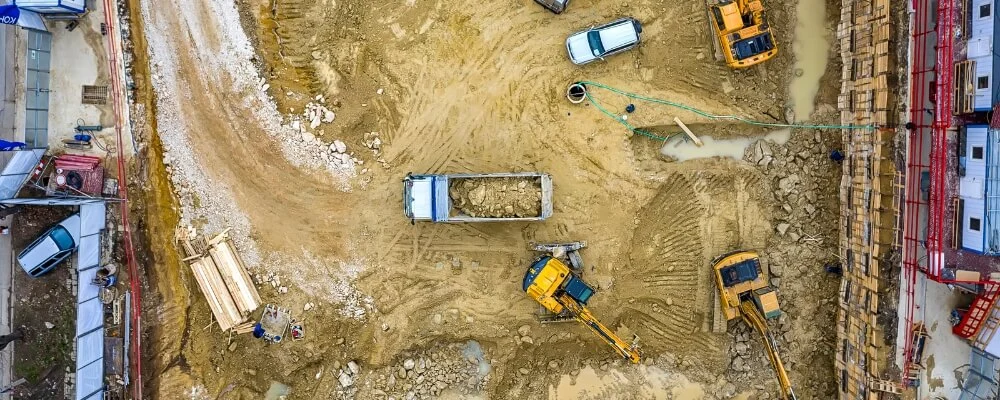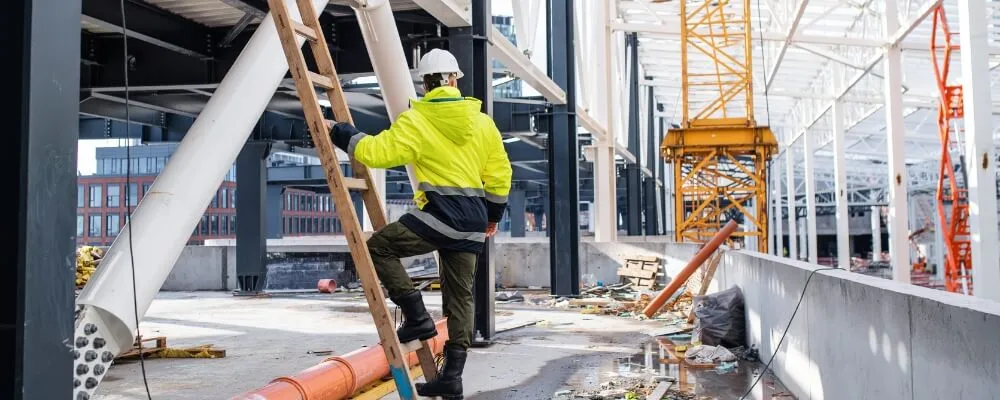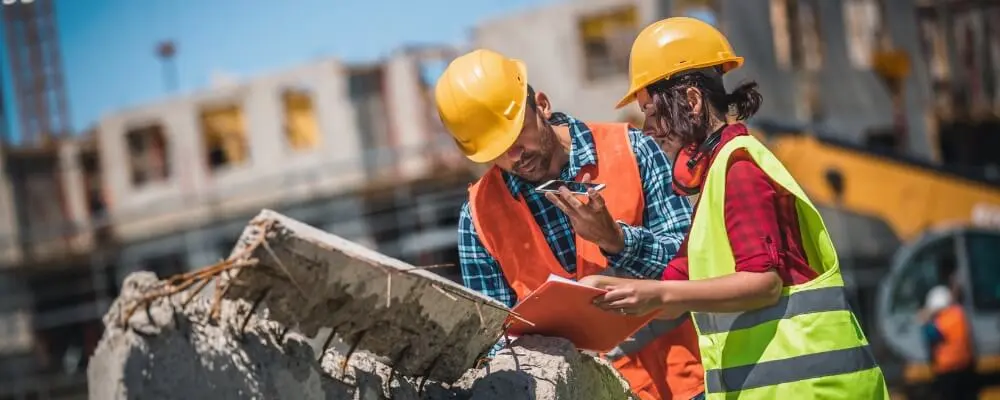Mental health in the construction industry is a pressing issue, often overshadowed by the physical dangers of the job. However, the reality is staggering: construction workers are six times more likely to die by suicide than from a workplace accident, and young construction workers are more than twice as likely to take their own lives compared to other young men. These numbers highlight the silent crisis many workers face, battling stress, depression, and anxiety on the job. The unique pressures of the construction industry, including long hours, high physical demands, and job insecurity, all contribute to these mental health struggles.
The mental toll on construction workers isn’t just a personal issue; it affects entire teams, families, and companies. Unaddressed mental health problems can lead to decreased productivity, increased absenteeism, and even dangerous mistakes on the job. It’s time we start treating mental health with the same urgency we give to physical safety on construction sites.
In this article, we will explore ten practical and compassionate tips to support the mental well-being of construction workers, ensuring that they feel valued, supported, and equipped to thrive both on and off the job.
What Is Mental Health?
Mental health refers to a person’s emotional, psychological, and social well-being. It affects how individuals think, feel, and behave in daily life, as well as how they handle stress, relate to others, and make choices. Good mental health doesn’t simply mean the absence of mental illnesses like depression or anxiety. It’s about having the capacity to cope with the normal stresses of life, work productively, and contribute to the community. Poor mental well-being can exist without a formal mental illness but may still cause significant struggles in functioning across various areas of life.
Mental illness, on the other hand, occurs when mental health issues begin to disrupt daily life, impacting relationships, work, and other important areas. Signs of mental illness can include changes in mood, behaviour, and cognitive functioning, such as difficulty concentrating or withdrawing from social activities. While mental health and mental illness are related, they are not the same. One can experience good mental health even with a diagnosed mental illness if one manages their condition well.

Why Mental Health is the Biggest Danger in Construction
Mental health has emerged as a major concern in the construction industry, and many believe it’s one of the most significant hazards workers face. Here’s why:
- High Suicide Rates: Construction workers are six times more likely to die by suicide than in workplace accidents, with young workers particularly vulnerable, being twice as likely to take their own lives compared to other young men.
- Prevalence of Psychosocial Hazards: The construction industry is filled with psychosocial hazards like bullying, harassment, and poor relationships between workers and supervisors. These negative interactions contribute to stress and poor mental health.
- Poor Job Organization: Many construction tasks are poorly planned, leading to excessive workloads and unclear job expectations. Workers often have little control over how their tasks are carried out, which increases anxiety and mental strain.
- Unsafe Working Conditions: Workers in construction are frequently exposed to dangerous or traumatic situations. This exposure, combined with the physical risks of the job, further exacerbates mental health problems.
- Stigma Around Mental Health: There is often a reluctance to talk about mental health in the construction industry, both from workers and employers, leading to untreated mental health issues and further deterioration of well-being.
- Impact on Job Performance: Poor mental health can lead to decreased job performance, absenteeism, presenteeism (working while mentally unwell), and increased workplace conflicts, all of which create a dangerous and unproductive work environment.
- High Stress from Job Pressure: Workers are frequently subjected to tight deadlines and unrealistic job expectations, leading to chronic stress and burnout, which increases the likelihood of both physical and mental health issues.
- Limited Access to Support: Many construction sites lack sufficient mental health support services, leaving workers without the resources they need to address mental health issues effectively.
In light of these factors, it’s evident that mental health is not just a personal issue for construction workers; it’s a broader industry challenge with significant implications for safety, productivity, and overall well-being. Addressing mental health proactively can lead to safer worksites, improved worker satisfaction, and more successful project outcomes.

10 Tips to Improve Mental Health In Construction Jobsites
Mental health is an often overlooked aspect of workplace safety, particularly on construction sites, where the focus tends to be on physical hazards. However, mental health challenges in the construction industry are a growing concern, with construction workers facing unique stressors that can impact their well-being. Let’s discuss the actionable tips, based on industry best practices, to help improve mental health on construction job sites.
1. Foster a Supportive Workplace Culture
Creating a positive and mentally healthy jobsite begins with fostering a supportive workplace culture. Construction sites are fast-paced and high-pressure environments, but establishing strong, positive relationships among workers can mitigate mental health risks. To create this environment:
- Eliminate bullying, aggression, and violence – These behaviors are significant psychosocial hazards that contribute to poor mental health.
- Promote respect and teamwork – Encourage workers to support each other and lead by example as managers. Positive interactions among colleagues reduce stress and anxiety.
- Regular communication – Make mental health and well-being part of everyday safety conversations, ensuring workers feel comfortable discussing any challenges they face.
2. Identify Psychosocial Hazards
Understanding and addressing psychosocial hazards in construction is crucial for improving mental health. Psychosocial hazards include unhealthy work relationships, poor job organization, and unsafe environments. To manage these hazards:
- Conduct regular assessments – Identify specific hazards in the workplace, such as excessive workload, poor job control, or bullying.
- Implement control measures – Take steps to mitigate these risks, such as organizing workloads better or fostering healthier work relationships.
- Involve workers – Consult with employees on how to best manage these risks, and encourage feedback to ensure continuous improvement.
3. Clarify Job Expectations
Unclear job expectations can lead to confusion, stress, and anxiety. Workers should always know what is expected of them, both in terms of tasks and safety requirements. To ensure clarity:
- Provide detailed instructions – Ensure supervisors give clear directions and safety guidelines for every task. Workers should feel confident in their role and responsibilities.
- Encourage questions – Create an environment where workers feel comfortable asking questions when they need clarification. Supervisors should be approachable and willing to offer support.
- Review processes regularly – Regularly check in with workers to ensure they understand their tasks and feel confident in carrying them out.

4. Encourage Regular Breaks and Time Off
Long hours and intense physical demands in construction can take a toll on workers’ mental health. Encouraging regular breaks and ensuring workers take their allotted time off helps reduce fatigue and stress. Steps to encourage breaks include:
- Mandate break times – Make sure workers take regular breaks during their shifts, especially during long or particularly stressful work periods.
- Promote work-life balance – Encourage workers to use their vacation time and ensure they have adequate time off between shifts to recharge.
- Monitor fatigue – Supervisors should watch for signs of worker fatigue and adjust workloads as necessary to prevent burnout.
5. Initiate Mental Health Conversations
Talking about mental health can be difficult, but open dialogue is essential for creating a supportive environment. Workers experiencing mental health issues may exhibit changes in mood, behavior, or performance, and supervisors should be prepared to address these changes with care. To initiate mental health conversations:
- Start the conversation privately – Find a quiet, comfortable place to talk with the worker. Be non-judgmental and let them know you’ve noticed changes in their behavior.
- Ask open-ended questions – Use prompts like “How are you doing?” or “Is there anything I can help with?” to encourage workers to open up about their challenges.
- Be patient – If the worker isn’t ready to talk, respect their space but let them know you’re there when they’re ready.
6. Encourage Worker Involvement and Control Over Tasks
One of the key factors that can improve mental health on construction jobsites is giving workers a sense of control and involvement in how their tasks are performed. Feeling empowered can significantly reduce stress and anxiety. To promote worker involvement:
- Incorporate worker feedback – Allow workers to provide input on how tasks are organized and carried out. This can improve both efficiency and worker satisfaction.
- Give autonomy where possible – Enable workers to make decisions about their tasks, such as how to sequence activities or manage their time.
- Plan ahead – Poor job planning can lead to rushed work, which increases stress. Ensuring that work is well-organized and allowing workers enough time to complete tasks safely can alleviate pressure.
7. Promote Access to Mental Health Resources
Providing workers with easy access to mental health resources is essential for creating a supportive jobsite. Many workers may not know where to turn if they are experiencing mental health challenges. Employers should:
- Provide information on support services – Regularly share details about available mental health support programs, such as Employee Assistance Programs (EAPs) or external services like counseling.
- Create awareness of 24/7 helplines – Promote services such as Lifeline, Beyond Blue, or Mates in Construction, which offer free and confidential help at any time.
- Ensure confidentiality – Make sure workers know that accessing mental health services is confidential and that their privacy will be protected.

8. Train Supervisors in Mental Health Awareness
Supervisors play a critical role in maintaining a mentally healthy jobsite. They are often the first to notice changes in behavior or mood among workers. Proper training can equip supervisors with the tools they need to support their teams. Effective strategies include:
- Recognize signs of mental distress – Supervisors should be trained to identify early warning signs of mental health struggles, such as mood changes, reduced performance, or increased absenteeism.
- Provide mental health first aid – Basic mental health training can teach supervisors how to offer initial support to workers experiencing mental health challenges.
- Model healthy behavior – Supervisors should set an example by managing their own mental health and encouraging work-life balance.
9. Ensure a Safe Physical Work Environment
Mental health is closely linked to physical safety. A worksite that feels unsafe or disorganized can heighten anxiety and stress among workers. To ensure that the jobsite is both physically and mentally safe:
- Provide the necessary safety equipment – Workers should always have access to the tools and equipment they need to do their jobs safely.
- Maintain clean and orderly worksites – An organized and well-maintained worksite not only reduces physical hazards but also creates a calmer and more manageable work environment.
- Address hazards promptly – Supervisors should ensure that all physical hazards are identified and mitigated quickly to prevent accidents and alleviate worker concerns.
10. Maintain Ongoing Communication and Support
Ongoing communication is key to fostering long-term mental health on construction jobsites. Workers should feel supported not only during times of crisis but as a normal part of the workplace culture. To maintain strong communication:
- Regular check-ins – Supervisors should make a habit of checking in with workers regularly, even when there are no apparent problems. This proactive approach helps build trust.
- Follow up after issues are raised – If a worker discusses a mental health concern, supervisors should stay connected and continue to offer support as needed. Small, regular check-ins can make a big difference.
- Encourage peer support – Promote an environment where workers feel comfortable supporting each other. Peer support can be just as valuable as managerial oversight in maintaining mental health.
In conclusion, improving mental health on construction job sites is not just an ethical responsibility but a vital part of creating safer, more productive workplaces. By addressing the unique challenges construction workers face, such as stress, poor job organization, and exposure to psychosocial hazards, employers can foster an environment where mental well-being is prioritized alongside physical safety. Implementing these ten practical tips can help reduce the alarming rates of mental health issues, boost morale, and ultimately save lives. Supporting workers’ mental health ensures that they feel valued, heard, and empowered to perform their best both on and off the job.

